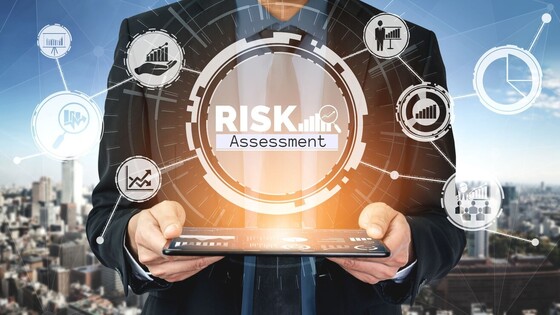Security Risk Assessment: Overview
All your business processes, technologies, and business operations involve inherent security risks, and your organization is the only one responsible to make sure those risks are both acknowledged and addressed.
Regardless of the size of your organization, the need for a technology security risk assessment is obvious because the threat is imminent. Many organizations do not have one performed, exposing their assets to cyber-attacks.
Who Should Perform a Cyber Risk Assessment?
The process requires organizational transparency, typically provided by internal teams. However, organizations with no skilled personnel can outsource risk assessment to a third party.
An in-house team will include technicians and engineers with a deep understanding of the organization’s network infrastructure and flows of information for any process or system.
Why Perform a Security Risk Assessment?
Protects Your Reputation
Without regular assessments, the danger of security breaches is high, putting your organization’s reputation on the line with clients and vendors for not adequately protecting their data against an attack. This would affect your reputation and impact the potential of your business.
Avoid Security Breaches
Regardless of how sophisticated your systems are, your organization will always be a target for cyber criminals. Hackers are constantly looking for fraudulent means to take advantage of any vulnerabilities in your system.
Performing frequent risk assessments can help your team identify security issues and ensure that relevant policies and controls are put in place before a breach.
Keeps Systems Updated
Security protocols are always changing, and your organization’s technologies and processes are changing as well. Conducting security risk assessments regularly allows you to consolidate the state of security of your business.
Reduces Costs
Depending on the size of your organization, a breach can cost you thousands of dollars or even more just to get your data back and business operations up and running.
However, there is the cost associated with clients leaving or time spent reassuring clients. All those costs mentioned are usually unplanned expenses and can become a heavy burden to your budget. A security risk assessment allows you to plan and reduce such costs.
Avoid Violations
Organizations that handle sensitive data, such as protected health information, are required to abide by security and privacy laws. Failing to perform a security risk assessment is a violation of these regulations.
Also, if a breach does occur, there is the potential of fines and long and costly lawsuits. One of the easiest ways to avoid non-compliance is by performing a security risk assessment.
Increase Self-Awareness
Another major benefit of such an assessment is the ability to provide you with a detailed report about your network and how it is being utilized. This could also highlight inefficiencies within your network that could be costing you money and could be easily streamlined with an adequate solution.
An IT security risk assessment can help identify exploitable vulnerabilities that your team might not be aware of. Unfortunately, without proper insight over their network, an organization cannot efficiently secure its infrastructure against an attack.
A Culture of Safety
Creating a culture of safety should be more than just a legal requirement. As an organization, it is your responsibility to build an environment where your staff and customers feel safe and valued.
Developing skills for identifying, analyzing, and evaluating security risks is crucial. Therefore, investing in security risk assessment training will help your organization in the long run.
NOTE: Cybersecurity awareness training can serve as a starting point for empowering workers with a clearer understanding of security risks.
As you can see, there are several benefits to an organization for having regular security risk assessments performed. Our seasoned team has the necessary resources to provide you with top-notch cyber risk assessment, security awareness training, network security services, and more.



